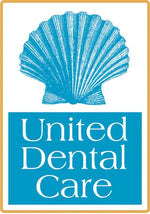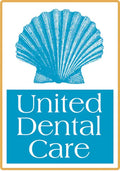Is an In-House Dental Plan Right for Your Family?
In a world where dental insurance can sometimes feel like an uphill battle of costs and restrictions, picture this: a time or place where you don’t have to worry about waiting periods, maximums, and deductibles.
You might find it surprising, but there's an alternative that can make dental care feel more manageable. You can forget about fretting over routine check-ups, cleanings, and X-ray expenses with an in-house dental plan.
But is this plan equally beneficial for family members? Yes, it is!
If you're feeling uncertain, don't stop here. Keep reading to discover how an in-house or personal dental membership program can provide all the benefits your family requires.
But before we dive into this discussion, let’s first put things into perspective.

The challenges of dental insurance
The average cost of dental insurance ranges from $7 to $82 per month, depending on the plan type and the coverage level. These prices aren’t absolute, though.
It’s important to remember that several elements influence the cost estimates of dental insurance.
Primarily, the number of individuals included in the policy plays a pivotal role. It could be tailored for a single person, a married couple, or a family encompassing multiple children or dependents.
Additionally, geographical disparities in the cost of care can lead to differences in the pricing of the same plan across regions.
Depending on your situation, you may find some plans more affordable and suitable than others—you might also see these factors as less favorable.
You might look at it this way: some dental insurance is not widely available, affordable, or comprehensive for many people, especially those who belong to racial and ethnic minorities, low-income groups, or rural areas.
If you belong to this group, you may face high premiums, deductibles, copayments, coinsurance, and annual maximums, limiting dental care access. You may also encounter waiting periods, coverage limitations, exclusions, and claim forms that complicate things even more.
You who face these barriers may need help finding a dentist who accepts your insurance, getting to the dental office, understanding your oral health needs and options, or trusting your dentist. More or less, you may also have different preferences and expectations for dental care based on your background and values.
The data presented significantly impacts your family members' decisions regarding proper dental care and holds broader societal implications.
In other words, the affordability and suitability of dental plans become critical factors in determining whether to seek necessary dental care. Depending on circumstances, some plans may be seen as more accessible and fitting, while others may seem less favorable. This variation can influence your choice in pursuing dental care for yourself and your loved ones.
Why is an in-house plan the best solution? Let’s find out.
What is an in-house dental plan?
An in-house dental plan is an alternative to traditional dental insurance that offers patients services and discounts for a monthly or annual fee.
It is a plan created and managed by a specific dental practice. Patients can only use the plan at that practice and pay the fee directly to the dentist. An in-house plan may have more flexibility and customization for the dentist and the patient.
This dental membership program addresses a range of needs by providing a variety of membership categories, such as:
Individual plans - These plans are designed to meet the dental care needs of single individuals, offering them tailored benefits and coverage.
Family plans - Geared towards covering dental care, specifically preventive, for the entire family, including spouses and children.
Senior plans - Specifically tailored to address the dental needs of senior citizens, often including specialized care and age-relevant discounts
This assortment of membership options allows individuals and families to select the plan that aligns with their dental care needs.
How do you know if an in-house plan is right for your family?
When determining whether an in-house dental plan is the right fit for your family, there are several crucial factors to consider. These factors include your family’s dental needs, your plan's coverage and conditions, and your preferred dental provider.
Considering these factors ensures that your family's oral health requirements are met, you have access to the necessary treatments, and the plan aligns with your financial circumstances while maintaining a comfortable and trusted relationship with your chosen dentist.
Assessing your family’s dental needs.
First and foremost, assess your family's dental needs and oral health history. Do you have family members who require routine dental care, like cleanings and check-ups, or specific dental issues that demand attention?
However, if cosmetic dental care is a priority for your family, it's worth noting that these plans may not cover elective cosmetic procedures. In such cases, you might need to explore alternative dental financing options to meet your cosmetic dental needs.
Evaluating the Plan's Coverage
Examine the services covered by the in-house dental plan. Does it include routine preventive care (e.g., cleanings, check-ups), restorative treatments (e.g., fillings, crowns), and emergency services?
Also, reviewing whether your in-house dental plan covers orthodontics is crucial if you have family members who may need braces or similar treatments, as these procedures can be costly.
It’s equally vital to consider the size of your family and the number of family members who would benefit from the plan. Some plans offer family or group rates.
For instance, United Dental Care's in-house dental plan lets you save at least $538 if you enroll additional family members on top of your membership.
Additional family members can benefit from the following dental benefits for only $37 a month:
- Two dental exams
- Two hygiene cleanings
- Two fluoride treatments
- Two periodontal screenings
- Needed x-rays
- One emergency exam
By joining United Dental Care’s in-house membership, family members can get:
- 50% off Periodontal Maintenance
- 25% off Fillings, extractions, inlays and onlays, root canal treatment, and crowns
- 15% off implants
Comparing costs
A preventive care membership such as an in-house plan is not an insurance plan but a written agreement between you and the dental practice offering discounts for specific services provided.
Therefore, you need to read the terms and conditions of the plan carefully and compare it with other options before deciding.
For instance, it’s essential to compare the cost of the in-house dental plan with the potential out-of-pocket expenses for dental care without the plan.
Look at any limitations or restrictions on services covered or, like typical dental insurance, ask if it has any waiting periods for specific treatments. Nonetheless, most personal membership plans don’t have any waiting periods, maximums, or deductibles.
Choosing your provider network
Ensure that your preferred dental practice offers the in-house plan and assess the quality and reputation of the practice. Read reviews and check for recommendations. Check if the plan allows you to choose a dentist you prefer.
Being able to choose your preferred dental provider is advantageous for several reasons. It grants you control over your care, allowing you to select a dentist who aligns with your needs, instills trust, offers comfort, and fosters long-term relationships while ensuring convenience.
Long-term vs. short-term
Evaluating whether an in-house dental plan caters to short-term or long-term needs is crucial. Short-term plans may be ideal for individuals seeking specific treatments, while long-term plans benefit families with an extended relationship with their dental practice.
Choosing the right plan mitigates potential pain points, such as coverage gaps or the inconvenience of changing providers, ensuring consistent, cost-effective, and reliable dental care for your family in the long run.
The bottom line
Emphasizing the importance of preventive care as the foundation of dental health is vital in determining whether an in-house dental plan fits the bill.
So, it's essential to ask yourself: Do I need a plan that strongly supports preventive measures, not just cosmetics? If the answer is yes, we recommend getting an in-house dental plan.
The effectiveness of preventive dental care heavily relies on consistency and a long-term commitment. If your family can align with and willingly invest in these principles, your decision to opt for an in-house dental plan is warranted.
Of course, your current financial situation may also play a significant role in your decision-making process. But remember that dental care isn’t a mere financial choice you must make alone. It’s a holistic and strategic investment with your dental providers as trusted advisors and co-journeyers.
So, if you’re looking for the right dental practice to partner with, contact us at United Dental Care in Culver City, California.
At United Dental Care, we stand ready to be your partner on this journey. We are more than a dental practice; we are a community committed to your well-being.
Contact us today, and let's create a masterpiece together - a smile that radiates health, confidence, and lasting happiness.




 By:
By: 


